FORT BLISS, Texas - On the first day of Expert Field Medical Badge testing 67 Fort Bliss medical Soldiers filled the ranks. On the last day, only 23 Soldiers had successfully completed days of intense testing -- held from April 27 to May 7 -- to pin on one of the Army's most coveted, and most difficult, badges to attain.
"It's not an easy badge to earn," said Sgt. 1st Class Richard Reese, the event's test control officer. "This is definitely one of those badges that will set you apart from your peers."
Reese came from the U.S. Army Medical Department Center and School at Fort Sam Houston, Texas, to oversee the testing.
"It was a tough badge, but it was a lot of fun," said Spc. Julian Swedberg, from Holbrook, Ariz., serving with B Company, William Beaumont Army Medical Center. "It did help a lot having a lot of classmates. We worked well together. We went off each other's study habits, and worked with each other. That definitely helped a lot with the lanes."
The Army-wide graduation rate for the EFMB course is below 20 percent. However, since the wars in Iraq and Afghanistan have been going on the majority of training has been geared toward deployment with little time for events such as the EFMB. Therefore only 2 percent of Army officers and 0.7 percent of enlisted medical Soldiers hold the badge.
Of the 23 Soldiers who earned the right to wear the badge, 12 Soldiers serve with WBAMC, nine are with 3rd Brigade Combat Team, 1st Armored Division, one Soldier with 11th Air Defense Artillery Brigade, and one Soldier with U.S. Army Dental Command. Twenty enlisted Soldiers and three officers earned the badge.
The process of earning the badge began with a week of standardization and studying followed by five days of testing. The testing began with a 60-question written test and ended with a 12-mile road march. In between those two events were day and night land navigation and three days of combat situations lanes.
Sixty-five soldiers took the written test with 39 Soldiers receiving a passing grade by correctly answering at least 45 of the 60 questions. This was the only portion of the test Soldiers were allowed re-take. The retest was held Thursday, May 6.
After day two -- day and night land navigation day -- only 27 soldiers remained. Soldiers had to find three out four points to pass land navigation.
The third and fourth days of testing consisted of combat situations. They were rescuing a casualty from a downed helicopter, properly loading casualties onto a truck, and rendering medical aid to a fellow Soldier. Those that had to re-take the written test did so after the combat situation.
Twenty-three Soldiers were able to advance beyond the third and fourth day to the 12-mile road march. All 23 Soldiers finished the road march in the allotted three hours to complete the last step of the course.
"We all know the EFMB is a very coveted badge; it's a symbol of excellence that you have all earned and you should wear with great pride," said Maj. Gen. Bromberg, Fort Bliss commander. "I can never tell you 'thanks a lot,' because there's nothing better than having a qualified and skilled young medic by your side when it's needed."
Master Sgt. David Williams, Fort Bliss health care noncommissioned officer in charge, said this was the first time the post has hosted the event in more than 10 years.
Fort Bliss Command Sergeant Major, Command Sgt. Maj. David Davenport, said he wanted to bring the event back to help improve the core competence of the medical personnel on post and give them the same opportunity to earn the badge as Soldiers at other installations.
Wilburn said every major command on post was involved with the testing and the test was open to any Fort Bliss Soldier, but only medical personnel are allowed to wear the badge.
He also said Fort Bliss plans to host its next EFMB test in October.
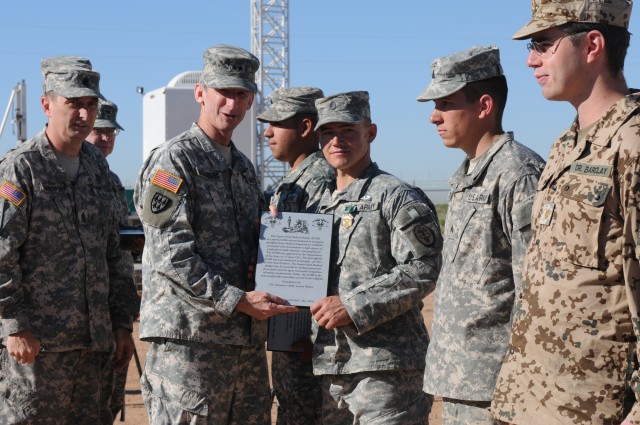
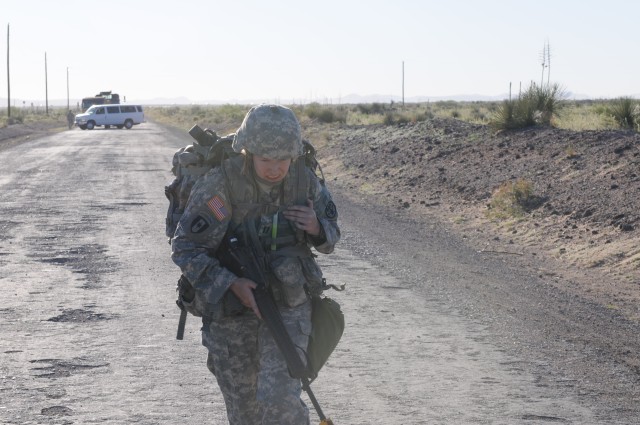
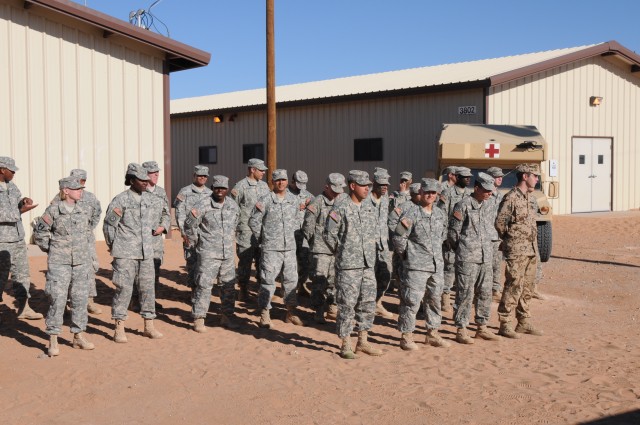
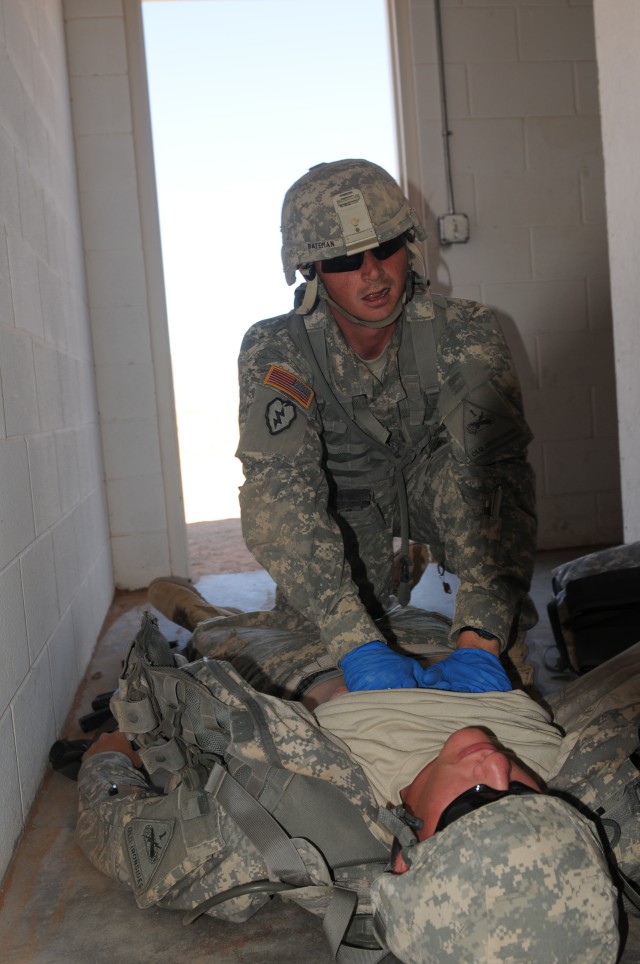
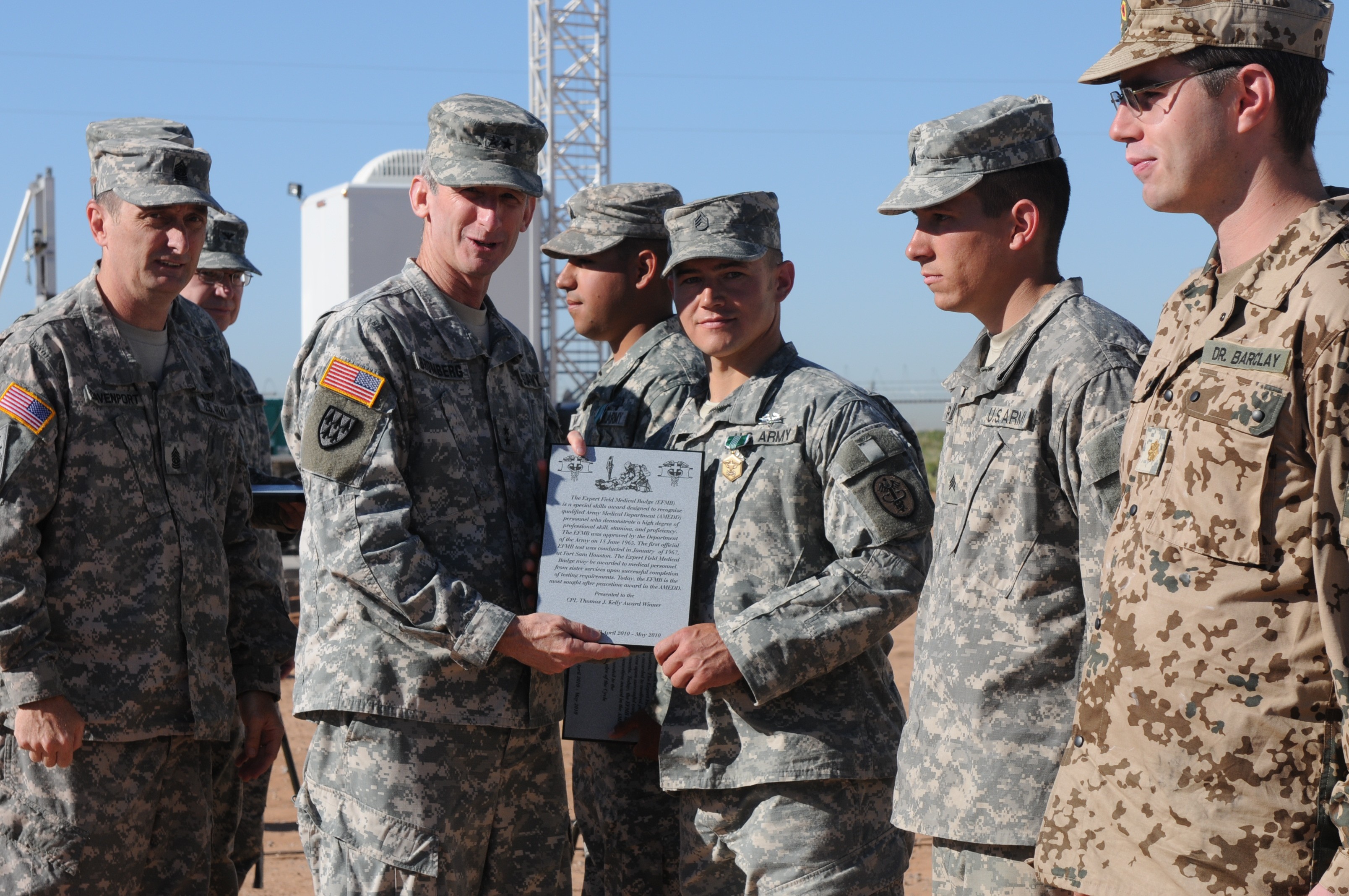
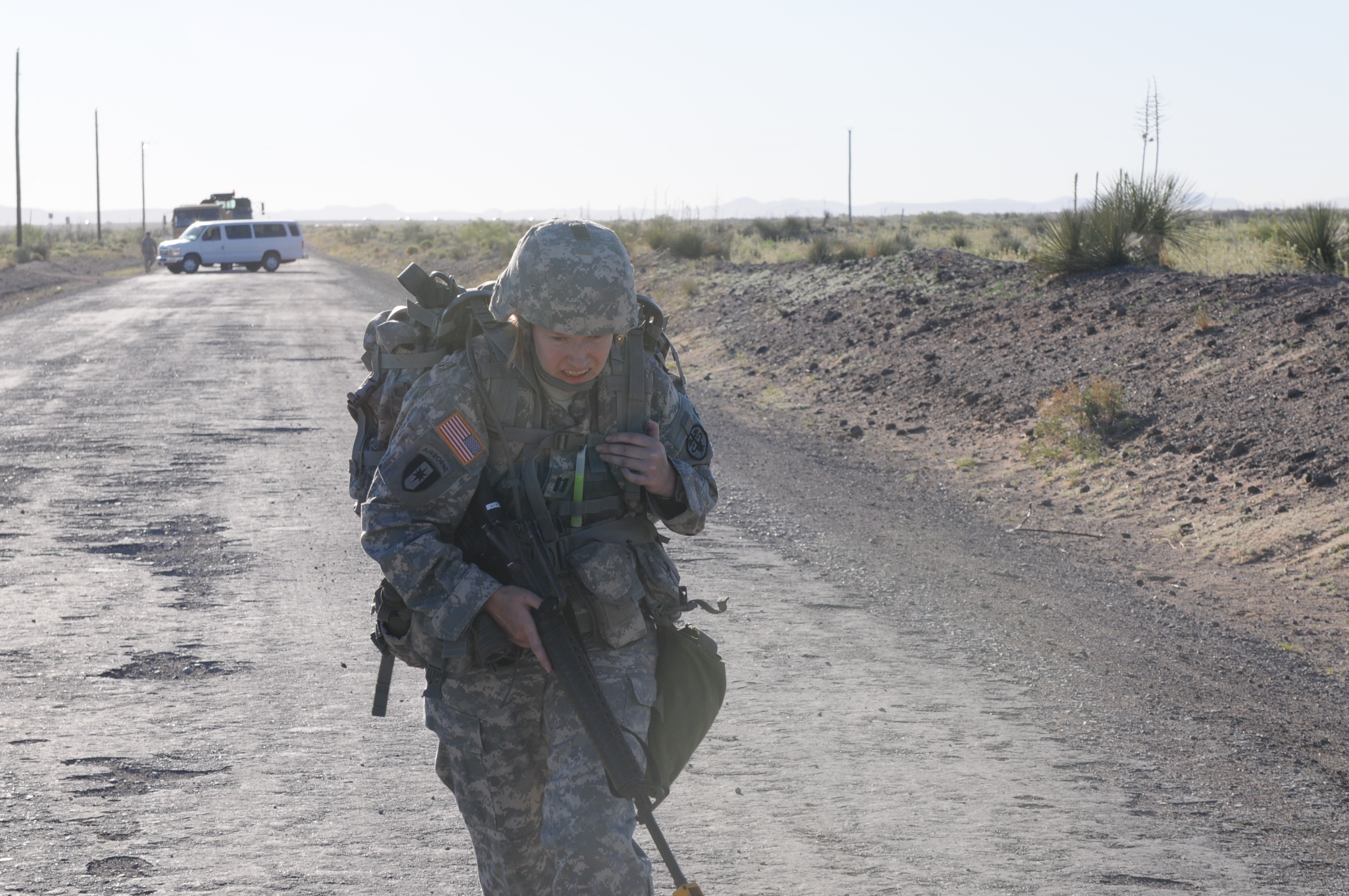
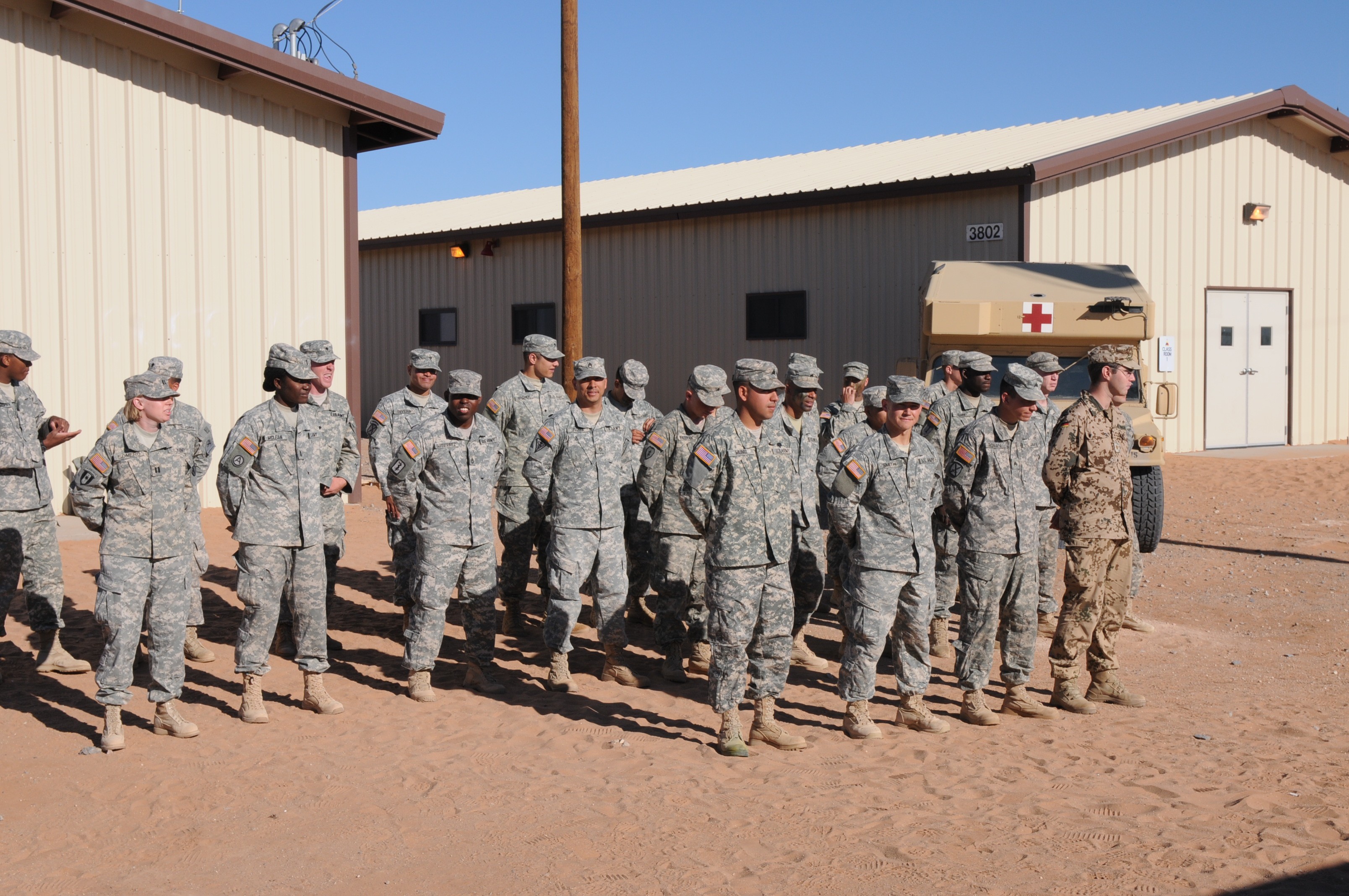
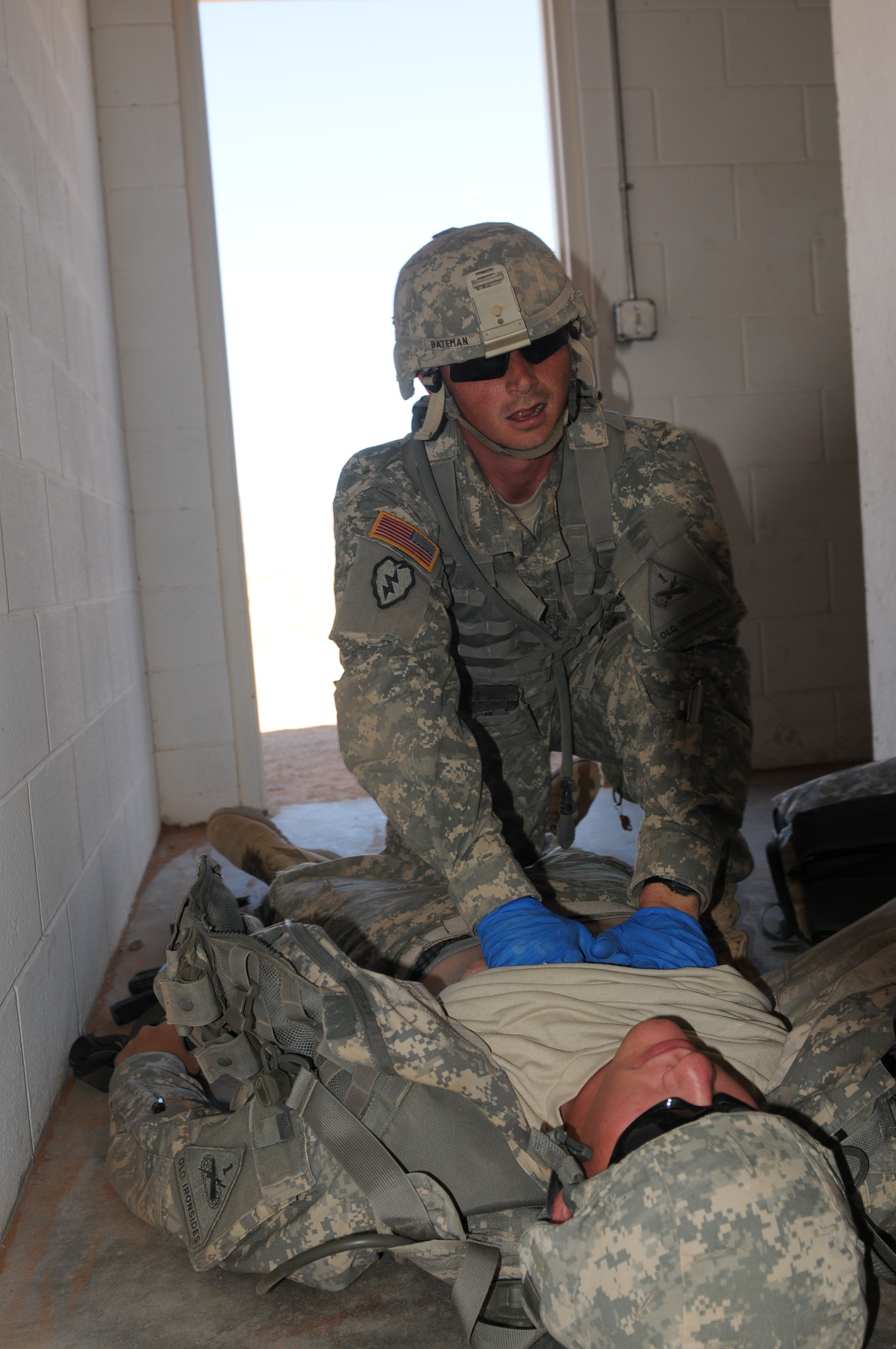
Social Sharing